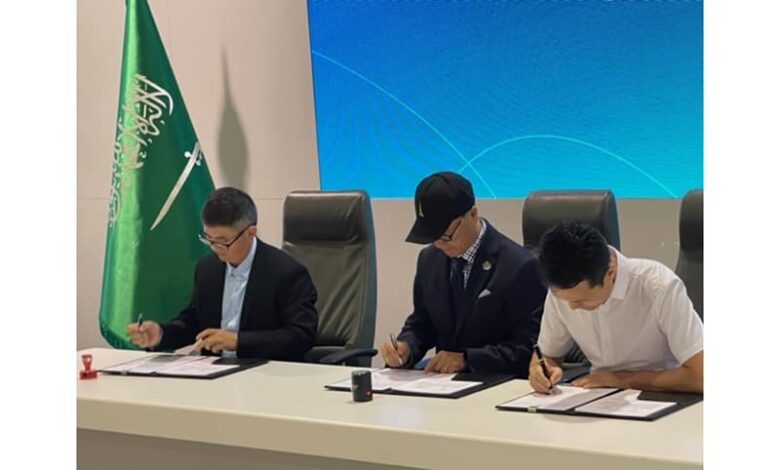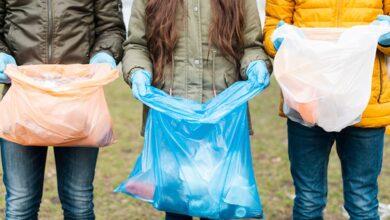Saudi Arabia’s KAUST, Chinese Firms Phase in Green Plastics

Saudi Arabia’s King Abdullah University of Science and Technology (KAUST) signed an agreement with two Chinese companies operating in the plastics sector to manufacture environmentally friendly green plastics, namely high molar mass aliphatic polycarbonates, based on KAUST technology. The projected timescale is two years to full commercialization, with the next year spent building the facility.
The manufactured green plastics are intended for biomedical products and food packaging. These applications prioritize biodegradability, low toxicity, and excellent biocompatibility characteristics, for which the KAUST polycarbonates are ideal.
Professor of Chemistry Yves Gnanou and academic researcher Xiaoshuang Feng, along with their research team at KAUST have developed an innovative method to create aliphatic polycarbonates without using toxic metals, which are typically used in the production of similar plastics. Their polycarbonates are unique because they are made using carbon dioxide (CO2) and raw materials from sustainable sources.
Xiaoshuang explained that regular polycarbonates made with metal catalysts cannot be used in applications like food or medical products because of the metals they contain. However, the KAUST polycarbonates are free of metals and an excellent barrier to oxygen and moisture, making them the perfect plastic for packaging items that need to be protected from oxidation and a top-quality material for high-end, biomedical applications.
Further, since up to 45% of the polycarbonates is CO2, the manufacturing has a lower footprint compared with similar products.
In early 2023, the two Chinese companies, Hangzhou Hecai Technology Co. Ltd. and Shandong Lianxin Environmental Protection Technology Co. Ltd., expressed interest in bringing KAUST’s polycarbonates to the market in a phased manner. In the initial phase, Hangzhou Hecai will provide the facilities to scale the synthesis of polycarbonates up to 10 kg using KAUST’s proprietary protocol. In the subsequent phase, Shandong Lianxin will leverage its extensive industrial capabilities to pilot the production of high molar mass aliphatic polycarbonates, aiming for a one-tonne output before full-scale industrialization.
Gnanou says, “This represents the first instance where a comprehensive plan has been formulated for the industrialization of high molar mass aliphatic polycarbonates through a Joint Development Agreement.”
As a concept, green plastics have existed for nearly two decades, with several manufacturers already embracing the principles of green chemistry to develop recyclable plastics. While solutions involving bio-based or biodegradable plastics have emerged, only a handful has achieved industrial adoption.
“I began contemplating biodegradable plastics several years ago, and I’m gratified that we’ve developed a material that can be completely converted into water and CO2 through enzymatic degradation at the end of its lifecycle. Our product won’t add to the environmental challenge,” adds Gnanou.





